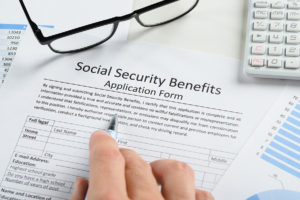Social Security From a Divorced Spouse

If you are divorced, there are a number of options for receiving Social Security benefits based on a former spouse’s earnings record. This is true, even if your former spouse remarries. The amount of benefits you receive won’t have an impact on the benefits to which your ex-spouse and his or her current spouse are entitled.
You can claim benefits on a former spouse’s record as long as you satisfy certain criteria. First, the marriage must have lasted 10 years or longer. You must also be unmarried at the time you claim Social Security benefits and be 62 or older. Another criterion is that the benefits based on your own employment record must be less than the benefits you’d receive based on your ex-spouse’s work record. Last, your former spouse must be entitled to Social Security retirement or disability benefits.
You can apply for benefits on your former spouse’s record, even if he or she hasn’t retired, provided you divorced at least two years before applying. If you file as a divorced spouse after your full retirement age, your benefit will be equal to half of your ex-spouse’s full retirement amount or disability benefit.
The same rules apply for a deceased former spouse.
You should know that, if you’re receiving a divorced spouse’s benefits, the general rule is that the divorced spouse’s benefits will cease if you remarry.
For more information on estate planning after a divorce see https://galligan-law.com/estate-planning-life-stages/planning-after-divorce/
Reference: nj.com (June 30, 2020) “I’m divorced. Can I get Social Security from my ex-husband?”

